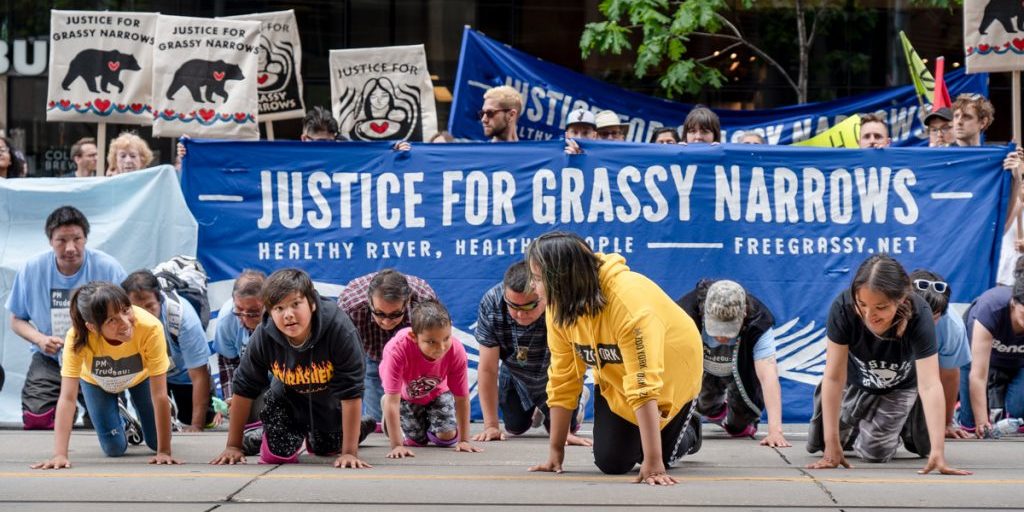The up-to-date news about the end of the logging blockade in Asubpeeschoseewagong community also known as Grassy Narrows is very encouraging. It is a step forward in the right direction to eliminate differences and help all grow together. Grassy Narrows is a First Nation band government who inhabit northern Kenora, in Ontario. It has a registered population of 1,595 as of October 2019.
Grassy Narrows started longest First Nation logging blockade in December 2002, which ended recently, when the former Chief Randy Fobister finally received the word of the head of Weyerhaeuser company, David M. Graham, which owns a lumber mill there, that no trees from their land would be touched without their permission.
The community declared “this is a major landmark in our long fight to protect our Territory from industry”
The Canadian constitution recognizes three groups of Indigenous peoples: Indians or First Nations, Inuit, and Metis. In 2016, 2.1 million people or 6.2 per cent of the total Canadian population, reported Indigenous ancestry with First Nations comprising 65,025 of that number.
In Grassy Narrows, the protest started in December of 2002, when a group of local people put a blockade in front of a logging truck, bringing wood from Whiskey Jack Forest. Fifty young men stood in front of the logging trucks and blocked their way with a pledge not to let them move forward. They were determined not to give up on protecting their land and resources. The logging was completely stopped in 2008 from more than one million hectares of land. The matter went to the court in 2017, the province declared a five-year ban on logging from more than three quarters of the forest, which was extended to 2024 early this year.
The important aspect of the protest was consistency and determination of the community to fight for their rights. It’s not only a matter of a single community but the whole world needs to protect forests to control climate change and keep the planet green and healthy
There are still some other issues remain to be resolved.
Grassy Narrows leaders demand the province must withdraw the indigenous community from mining activity to protect the First Nation from the risk of new industrial pollution that could impact future generations’ health and climate. Members of the community are accusing the government of breaking the law in granting nine permits for mineral exploration in traditional territory without consulting them – a requirement under the Canadian constitution and Ontario Mining Act. Abiding by the law is extremely important for reconciliation and is essential to renewing and building relationships with Indigenous people.
Canada started admitting her past mistakes about Indigenous populations in the beginning of this century and founded The Truth and Reconciliation Commission in June 2008 to improve relations with the Indigenous communities. Now, we are passing through the stage of reconciliation, and we are on the way to compromise for mutual coexistence with dignity, justice, and respect for all.
Always the first step in reconciliation is acknowledgement of mistakes and taking responsibility for the past excesses and atrocities committed. Former Prime Minister, Stephen Harper, issued a public apology on June 11, 2008 on behalf of the Canadian government to address the government’s role in the history of the Indigenous residential schools, where Indigenous children were kept. The Prime Minister announced in March this year that Ottawa would provide $2.9 million in additional funding for First Nations in B.C. to support healing of communities whose children were sent to residential schools.
The Government of Canada is working with Residential schools’ survivors, Indigenous leaders, and communities to address historical wrongs. Earlier in 2021, Grassy Narrows signed a $90 million agreement with the federal government to build a long-term care home for the residents living with mercury poisoning.
We should be optimistic about the future of resource development in Ontario, and other provinces. The Ministry of Natural Resources believes it is their duty to consult and consider the views of Indigenous communities in decisions regarding forestry and natural resource management.




